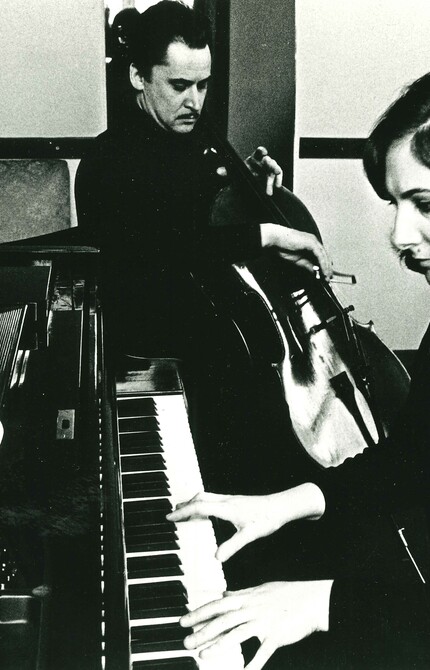
Resonant lessons
“You’re not here to be a good student. You’re here to be an artist.”
Though 14 years have passed, I can still recall sitting at the piano in the studio of Professor Marietta Orlov (1932-2020) at the University of Toronto’s Faculty of Music. She had made this remark after my lacklustre performance of Beethoven’s last piano sonata, and its impression has only deepened over time.
The best music teachers liberate their students’ voices and affirm that they deserve to be heard. Of course, such freedom comes with a price. In keeping with the bravura tradition established in the 19th century, classical pianists are still expected to perform by heart. This meant that in the weeks leading up to a solo recital, I had run through the entire concert programme twice every day to reinforce my memory and build up my stamina.
“Art is not meant to be comfortable,” Professor Orlov often used to say. Even though unplanned moments of inspiration during a performance should be embraced, she taught me to appreciate that spontaneity is paradoxically enabled by hours of rehearsal, kindled by a labour of love.
As a veteran performer, Professor Orlov understood that music can communicate with visceral immediacy. Reading about the compositional history of Sergei Prokofiev’s Seventh Sonata (1942) allowed me to make the mental connection between the disquieting tension of this music and its wartime context. But it was Professor Orlov’s recollection of rushing to take shelter during an air raid when she was a child in war-ravaged Europe, and her tapping out a biting marcato touch on the back of my hand, that made the urgency of Prokofiev’s music vivid to me.
In later years, I began teaching music myself. Before the outbreak of COVID-19, I taught piano to children with visual impairments at a school in Bangkok, Thailand. I marvelled at their tactile navigation of the keyboard’s terrain and their acute sense of hearing. One boy could detect that the high register of the piano is tuned slightly sharp – something that I had never really noticed at his age. Listening to a recording of Liszt’s Un sospiro for the first time, another child wondered if the music was produced by three hands. She was amazed when I explained that this was an illusion accomplished with two hands and demonstrated it on the piano for her.
Above all, the joy of musical discovery I saw expressed on the children’s faces reminded me of how music is as natural and animating as the air we breathe. Professor Orlov said that even approaching 80 years of age she was still “learning something new every day." It was only after I became a teacher that I could begin to fathom what she meant.
Today these “music lessons” resonate far beyond the studio. In my professional and personal life, I still strive to honour my creative voice, work with passion for a higher aim, and nurture meaningful connections within myself and with others.
My time under Professor Orlov’s tutelage helped me comprehend just how far-reaching the impact of great teachers can be: shaping habits, attitudes, and worldviews that serve pupils for the rest of their lives. Recognizing that teachers are at the heart of transformative education globally, UNESCO celebrates World Teachers’ Day on 5 October to foster greater appreciation for the work of teachers and to highlight the support that they need to fully deploy their talents.
Professor Orlov passed away in November 2020, aged 88. She was named to the Order of Canada “for her lifelong contributions as a piano pedagogue and for her enduring devotion to the next generation of Canadian musicians." Her legacy lives on in the numerous students whose lives she has touched. And for me, World Teachers’ Day is a fitting occasion for paying tribute to the most influential music teacher in my life and reaffirming the resonant lessons that keep me living musically.
---
Chairat Chongvattanakij is a Thai-Canadian consultant specializing in content creation for the Communications and Public Engagement team at the UNESCO Regional Office in Bangkok. He holds a Doctor of Musical Arts degree from the University of Toronto.
